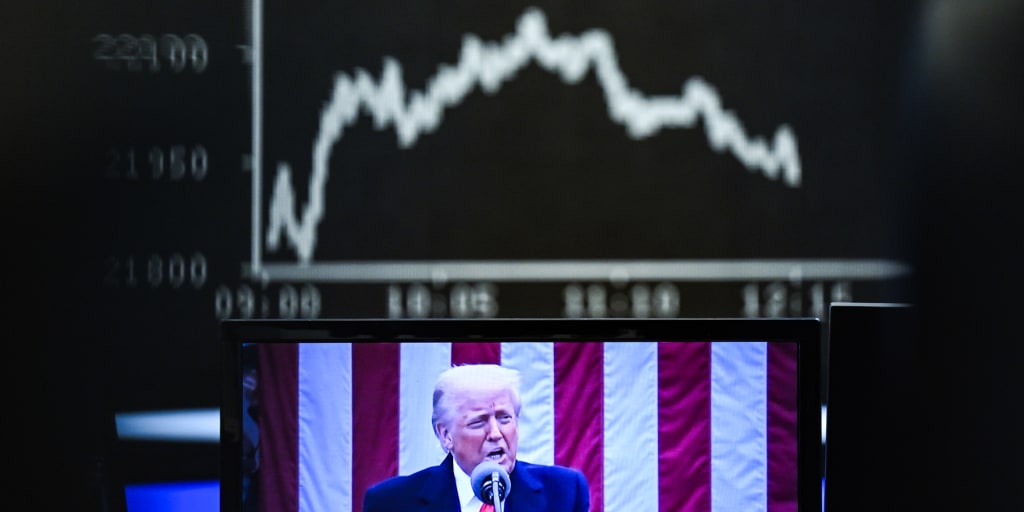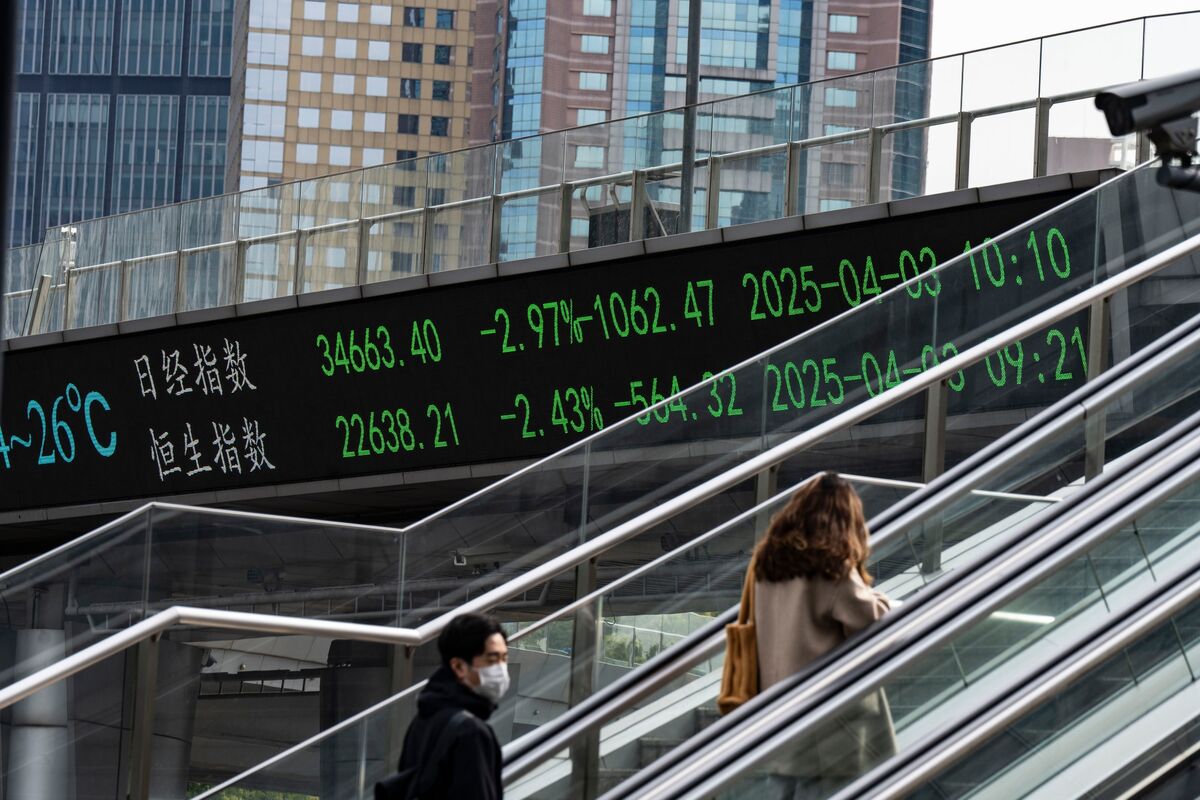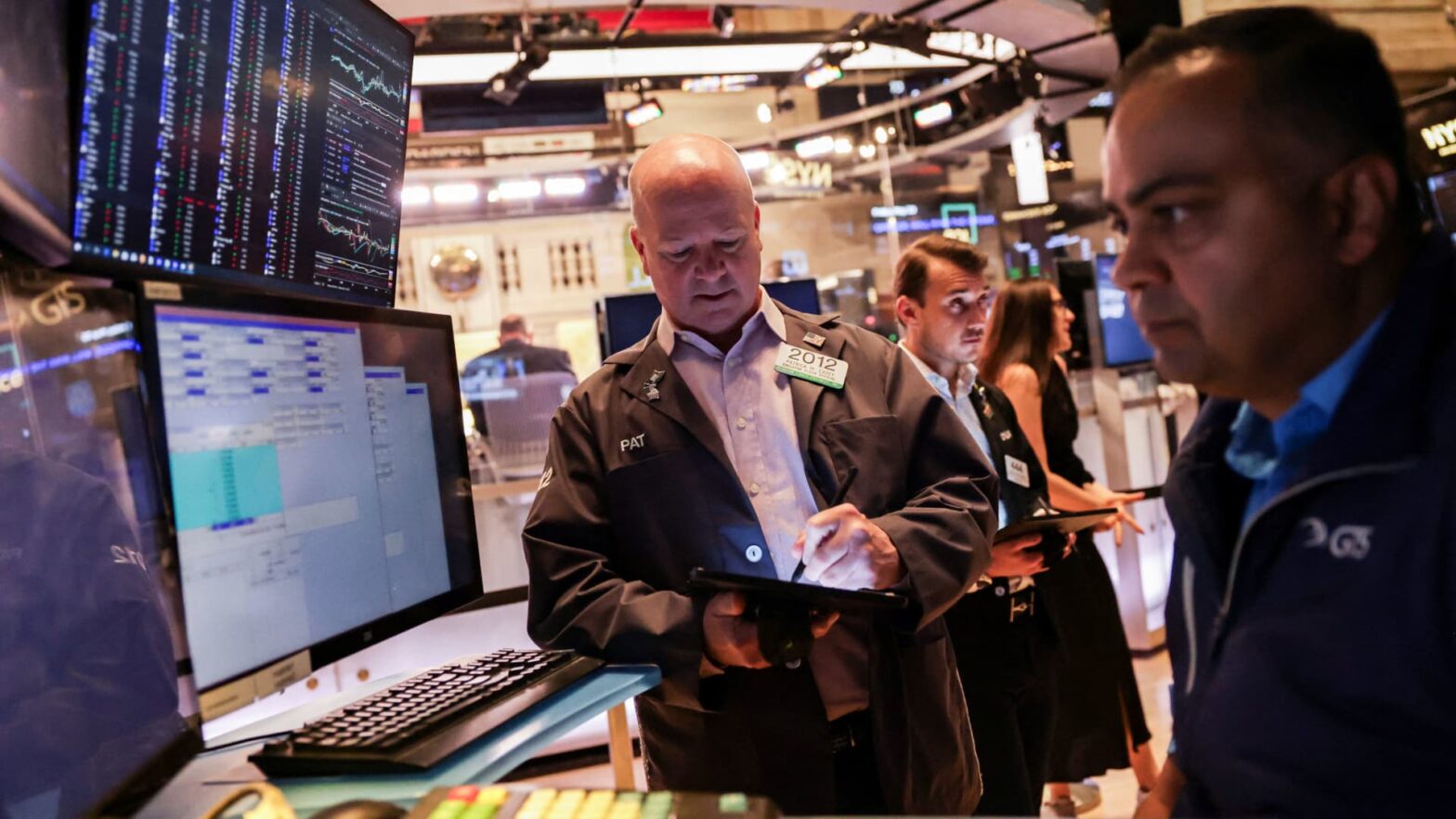For decades, American shoppers have served as the “consumer of last resort” for world markets. Under this implicit arrangement, other countries make products at relatively low cost that U.S. consumers buy — producing the extensive trade deficits Trump has long bemoaned.
But as the president emphasized Wednesday, this setup has cost the nation many manufacturing jobs — though technological advancements have also played a role.
Some parts of the country have managed the transition to a service-driven economy better than others, and it took decades for median inflation-adjusted earnings to eclipse their late-1970s levels. Indeed, real median earnings for male workers only just returned to those levels in the past quarter.
The problem, many economists warn, is that the genie can’t be put back in the bottle without causing U.S. wages to fall again. When Trump displayed a chart Wednesday showing how much other countries are “charging” the United States, he was really describing the extent of the country’s trade deficit with each of them.
“A bilateral trade deficit is not a strong indicator of a trade barrier,” said Felix Tintelnot, an economist at Duke University. “You spend your money at Trader Joe’s, but they don’t buy anything from you. Your employer pays your salary, but you typically don’t purchase anything from them. The existence of bilateral deficits is perfectly normal in an integrated economy.”
Zeroing out these trade imbalances would require the labor-intensive, low-wage work now being done in developing nations like Cambodia or Vietnam to be performed in the United States instead — a reversal that would likely make the average American worker poorer and crimp their spending power.
This is one reason so many analysts responded so negatively to the latest tariff rollout, with reactions such as “worse than the worst-case scenario,” “a perfect recipe for stagflation” and warnings that “many countries will likely end up in a recession.”
“The tariffs will make the U.S. poorer and invited retaliation from our allies and trading partners,” said Erica York, vice president of federal tax policy at the Tax Foundation. “This is a campaign promise that should have gone unfulfilled.”
Overnight, the 25% tariffs on auto imports Trump unveiled last week also took effect. Tariffs of 25% on foreign-made auto parts will be implemented no later than May 3, the administration has said, meaning any car sold in the U.S. will be vulnerable to tariffs by this time next month.
Markets were already battered heading into Wednesday. The S&P 500 and Nasdaq just recorded their worst quarter in years, largely due to growing uncertainty around the impact of the president’s trade policies.
U.S. stocks aren’t the only ones facing major selling, even though some overseas markets rallied recently in response shifts in American trade and foreign policy. Around the world, Japan’s main stock index and Europe’s Stoxx 600 each closed 2.7% lower Wednesday. The U.K.’s FTSE 100 saw declines of around 1.7% as German, French and Italian markets tumbled around 3%.
Rob Wile is a Pulitzer Prize-winning journalist covering breaking business stories for NBCNews.com.
Alexandra Byrne is an intern with the NBC News Business and Economy Unit.
















